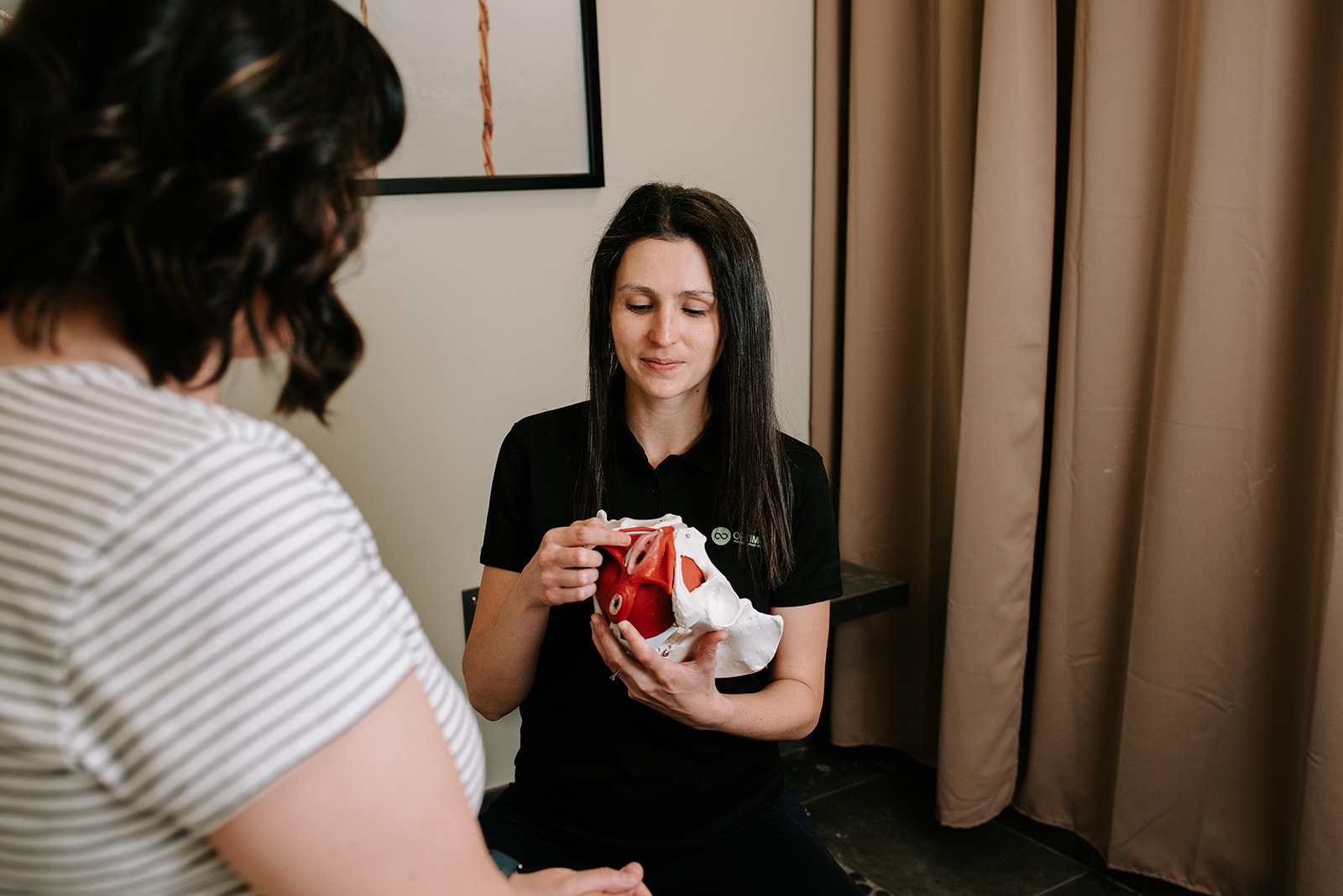Not Just Kegels!
So often with pelvic floor dysfunction it is assumed that the pelvic floor is weak and needs lots and lots of kegels (pelvic floor contraction) to strengthen it again. However, kegels can be the opposite of what your body needs! To function properly, the pelvic floor needs to be able to produce a strong contraction, relax fully, coordinate the contraction appropriately, and work together with the core and diaphragm. Our goal is to find the root of your symptoms, and take a full-body approach to help treat your symptoms and prevent them from happening again.



 Stress Urinary Incontinence (With Coughing, Sneezing, Laughing, & Exercise)
Stress Urinary Incontinence (With Coughing, Sneezing, Laughing, & Exercise)  What is your pelvic floor?
What is your pelvic floor? 
